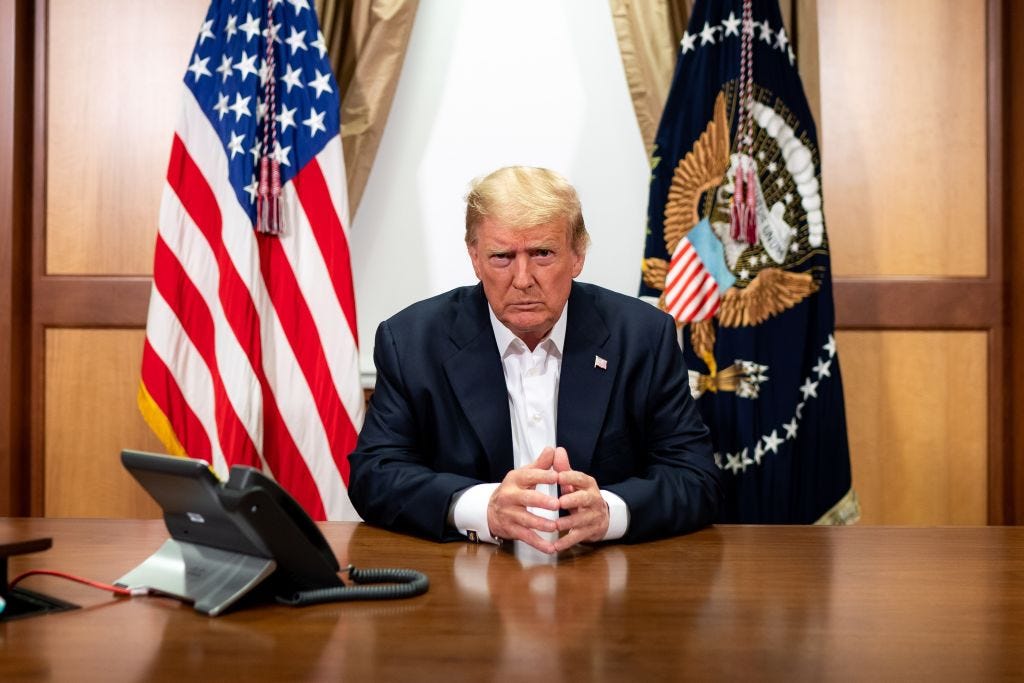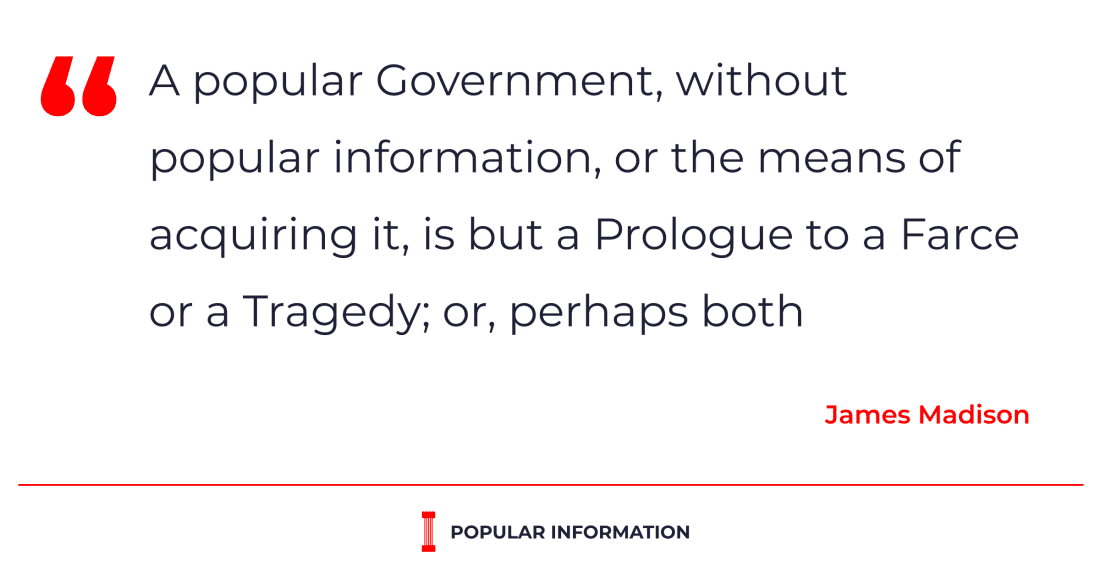On Saturday, Trump called Georgia Secretary of State Brad Raffensberger (R) and, for about an hour, pressed Raffensberger to overturn the election results and declare Trump the winner. The key passage comes in the second half of the call when Trump appears to threaten Raffensberger (and the general counsel of Raffenberger's office, Ryan Germany) with criminal prosecution if they don't "find" 11,780 votes — the precise number Trump says is needed to flip the outcome.
[I]t is more illegal for you than it is for them because, you know, what they did and you’re not reporting it. That’s a criminal, that’s a criminal offense. And you can’t let that happen. That’s a big risk to you and to Ryan, your lawyer. And that’s a big risk. But they are shredding ballots, in my opinion, based on what I’ve heard. And they are removing machinery, and they’re moving it as fast as they can, both of which are criminal finds. And you can’t let it happen, and you are letting it happen. You know, I mean, I’m notifying you that you’re letting it happen. So look. All I want to do is this. I just want to find 11,780 votes, which is one more than we have because we won the state.
Trump's contention that there are thousands of uncounted or fraudulent votes is entirely baseless. The ballots in Georgia have already been counted three times. All of those counts, including the hand recount ordered by Raffensberger, confirmed Biden's win.
Trump's bid to pressure a state official to declare him the winner of a state that he lost was amoral and undemocratic. But was it criminal? Quite possibly. Trump has significant issues under state and federal law.
Under Georgia law, a "person commits the offense of criminal solicitation to commit election fraud in the first degree when, with intent that another person engage in conduct constituting a felony under this article, he or she solicits, requests, commands, importunes, or otherwise attempts to cause the other person to engage in such conduct." Here, Trump is soliciting Raffensberger to "find" 11,780 votes that do not exist, which could violate this statute.
Trump's defense would be, whether or not the votes actually exist, Trump believes they do. Therefore, he didn't have the "intent" to solicit Raffensberger to commit election fraud. Instead, that was something that happened by accident because Trump believes his own conspiracies.
But there is no guarantee that such a defense would be successful. Prosecutors could produce evidence to undermine it. Prosecutors might be able to find, for example, one or more witnesses who would testify that Trump did not truly believe there were nearly 12,000 votes to be "found."
Further, Trump's conduct on the call suggests he just wants Raffensberger to declare him the winner, regardless of the actual vote count. At one point, Cleta Mitchell, an attorney who is assisting Trump, pushes for Georgia to provide data that she claims might help them establish that votes were improperly counted. Trump rejects that suggestion as unnecessary.
...I don’t want to get into it. We found a way . . . excuse me, but we don’t need it because we’re only down 11,000 votes, so we don’t even need it. I personally think they’re corrupt as hell. But we don’t need that. All we have to do, Cleta, is find 11,000-plus votes. So we don’t need that. I’m not looking to shake up the whole world…
At another point, Trump makes it explicit that he is just looking for Raffensberger to announce that Trump was the winner before Tuesday's Senate runoff.
And you would be respected. Really respected, if this thing could be straightened out before the election. You have a big election coming up on Tuesday. And I think that it is really is important that you meet tomorrow and work out on these numbers. Because I know, Brad, that if you think we’re right, I think you’re going to say, and I’m not looking to blame anybody, I’m just saying, you know, and, you know, under new counts, and under new views, of the election results, we won the election. You know? It’s very simple. We won the election.
These requests undermine the notion that Trump was making a good-faith request to actually find 11,780 Trump votes (or invalidate a similar number of Biden votes). Instead, he implores Raffensberger to skip any kind of inquiry and declare him the winner within hours. "And there’s nothing wrong with saying, you know, um, that you’ve recalculated," Trump said at another point in the call.
The issue of intent is also critical under federal law which makes it a crime for someone to "knowingly and willfully deprives, defrauds, or attempts to deprive or defraud the residents of a State of a fair and impartially conducted election process, by… the procurement, casting, or tabulation of ballots that are known by the person to be materially false, fictitious, or fraudulent under the laws of the State in which the election is held." Again, the issue is proving Trump knew the votes he was seeking were fictitious. That would be difficult — but not necessarily impossible — to prove.
Trump could attempt to self-pardon himself to avoid federal prosecution. That's something no president has ever done and might be unconstitutional. But that has never stopped Trump before.
The wheels of justice turn in Georgia
Does a state prosecution of soon-to-be former President Trump seem implausible? In Georgia, things are already happening. On Monday, Raffensperger said it would be a conflict of interest for his office to open a probe but a criminal inquiry was still possible. "I understand that the Fulton County District Attorney wants to look at it," Raffensperger told ABC News.
In a statement, Fulton County District Attorney Fani Willis called Trump's call "disturbing" and pledged to "enforce the law without fear or favor." She added that "anyone who commits a felony violation of Georgia law in my jurisdiction will be held accountable." Willis said that she would review the matter if it was referred to her by Raffensperger.
A member of Georgia's state election board, David J. Worley, said the call "amounted to 'probable cause' to believe that Trump had violated Georgia election code." Worley requested that Raffensperger open a probe, which Raffensperger has the power to do.
Member of Congress request FBI investigation
Two members of Congress, Ted W. Lieu (D-CA) and Kathleen Rice (D-NY), asked FBI Director Christopher Wray to open a federal investigation of Trump's call to Raffensperger. "The prima facie elements of [state and federal] crimes have been met. Given the more than ample factual predicate, we are making a criminal referral to you to open an investigation into Mr. Trump," they wrote.
Wray was nominated to his position by Trump in 2017 but is slated to serve a 10-year term. President-elect Biden will reportedly keep Wray in the position.



